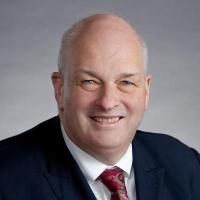Adult Spinal Deformity Surgery Is Associated with Increased Productivity and Decreased Absenteeism From Work and School.
Date
2022-02
Journal Title
Journal ISSN
Volume Title
Repository Usage Stats
views
downloads
Citation Stats
Abstract
Study design
Retrospective cohort study.Objective
We hypothesized that adult spinal deformity (ASD) surgery would be associated with improved work- and school-related productivity, as well as decreased rates of absenteeism.Summary of background data
ASD patients experience markedly decreased health-related quality of life along many dimensions.Methods
Only patients eligible for 2-year follow-up were included, and those with a history of previous spinal fusion were excluded. The primary outcome measures in this study were Scoliosis Research Society-22r score (SRS-22r) questions 9 and 17. A repeated measures mixed linear regression was used to analyze responses over time among patients managed operatively (OP) versus nonoperatively (NON-OP).Results
In total, 1188 patients were analyzed. 66.6% were managed operatively. At baseline, the mean percentage of activity at work/school was 56.4% (standard deviation [SD] 35.4%), and the mean days off from work/school over the past 90 days was 1.6 (SD 1.8). Patients undergoing ASD surgery exhibited an 18.1% absolute increase in work/school productivity at 2-year follow-up versus baseline (P < 0.0001), while no significant change was observed for the nonoperative cohort (P > 0.5). Similarly, the OP cohort experienced 1.1 fewer absent days over the past 90 days at 2 years versus baseline (P < 0.0001), while the NON-OP cohort showed no such difference (P > 0.3). These differences were largely preserved after stratifying by baseline employment status, age group, sagittal vertical axis (SVA), pelvic incidence minus lumbar lordosis (PI-LL), and deformity curve type.Conclusion
ASD patients managed operatively exhibited an average increase in work/school productivity of 18.1% and decreased absenteeism of 1.1 per 90 days at 2-year follow-up, while patients managed nonoperatively did not exhibit change from baseline. Given the age distribution of patients in this study, these findings should be interpreted as pertaining primarily to obligations at work or within the home. Further study of the direct and indirect economic benefits of ASD surgery to patients is warranted.Level of Evidence: 3.Type
Department
Description
Provenance
Citation
Permalink
Published Version (Please cite this version)
Publication Info
Durand, Wesley M, Jacob M Babu, David K Hamilton, Peter G Passias, Han Jo Kim, Themistocles Protopsaltis, Virginie Lafage, Renaud Lafage, et al. (2022). Adult Spinal Deformity Surgery Is Associated with Increased Productivity and Decreased Absenteeism From Work and School. Spine, 47(4). pp. 287–294. 10.1097/brs.0000000000004271 Retrieved from https://hdl.handle.net/10161/28044.
This is constructed from limited available data and may be imprecise. To cite this article, please review & use the official citation provided by the journal.
Collections
Scholars@Duke
Peter Passias

Christopher Ignatius Shaffrey
I have more than 25 years of experience treating patients of all ages with spinal disorders. I have had an interest in the management of spinal disorders since starting my medical education. I performed residencies in both orthopaedic surgery and neurosurgery to gain a comprehensive understanding of the entire range of spinal disorders. My goal has been to find innovative ways to manage the range of spinal conditions, straightforward to complex. I have a focus on managing patients with complex spinal disorders. My patient evaluation and management philosophy is to provide engaged, compassionate care that focuses on providing the simplest and least aggressive treatment option for a particular condition. In many cases, non-operative treatment options exist to improve a patient’s symptoms. I have been actively engaged in clinical research to find the best ways to manage spinal disorders in order to achieve better results with fewer complications.
Unless otherwise indicated, scholarly articles published by Duke faculty members are made available here with a CC-BY-NC (Creative Commons Attribution Non-Commercial) license, as enabled by the Duke Open Access Policy. If you wish to use the materials in ways not already permitted under CC-BY-NC, please consult the copyright owner. Other materials are made available here through the author’s grant of a non-exclusive license to make their work openly accessible.
